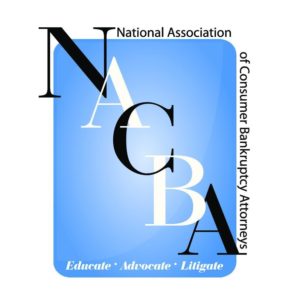Houston Bankruptcy Attorney: Filing for Consumer Bankruptcy
Filing for bankruptcy in Texas can bring peace of mind, puts an end to collection calls, and helps to stop repossession in Texas. If you are considering a chapter 7 or 13 bankruptcy in the Houston or Galveston Divisions of the Southern District of Texas, but are unsure what options are available, our Houston bankruptcy attorneys and debt relief agency can help. This law firm is a debt relief agency. In addition to other services we offer, our attorneys help people to file for bankruptcy relief under the U.S. Bankruptcy Code. The following information explains more about different bankruptcy types and about repossession, foreclosure, and exemptions in Texas.
Chapter 7 Bankruptcy
Chapter 7 Bankruptcy takes about four months from the filing date to discharge. The costs for a chapter 7 usually start around $2,000 and can go as high as $5,000 if you are trying to close a business. Most consumer cases are less than $2,500 at our firm. Chapter 7 bankruptcy is sometimes called as a “straight” bankruptcy or “liquidation” bankruptcy. This chapter is available to individuals, married couples filing jointly, or married couples filing individually. Corporations and businesses can also file under chapter 7.
Generally, you can only get a discharge in a Chapter 7 bankruptcy every eight years. Given the powerful reach of Chapter 7 bankruptcy, the law restricts how often you may file. This prevents debtors from abusing the system by engaging in a “cycle of discharge.” In most cases, debtors in Texas can keep personal property and homestead. Please see our section on exemptions for further information on Texas Exemptions. Non-exempt property is turned over to your trustee who will sell the property to pay your creditors.
Under Chapter 7, when the petition is filed, a bankruptcy estate is created out of all of the debtor’s property. Theoretically, all of your pre-petition property is now owned by the bankruptcy court and may be sold by the Bankruptcy Trustee, and the proceeds used to pay off the debts. However, this rarely happens in a Chapter 7 Bankruptcy. You are required to claim the property as exempted and the trustee along with the creditors have 30 days after the meeting of creditors to object to claim of exemptions. Our attorneys will sit with you after you have provided a list of your property to determine if you should use Texas or Federal Exemptions.
Chapter 13 Bankruptcy
Chapter 13, also called “debt adjustment for regular wage earners,” allows you to spread out your debts over a period of 3 to 5 years. You are required to submit a Plan to the court which details how much you propose to pay each creditor. If approved by the court, these payments are to be made to the Trustee who then makes distributions on your behalf to your creditors. As an incentive to file for Chapter 13, the law allows discharge of more types of debts under chapter 13 bankruptcy than under Chapter 7 Bankruptcy.

Practice Limited to Federal Bankruptcy Law **Admitted to Southern District of Texas, licensed in the State of Indiana only
715 E. Whitney St. Houston, TX 77022
Phone: (713) 974-8099
Email: esouthward@busby-lee.com



